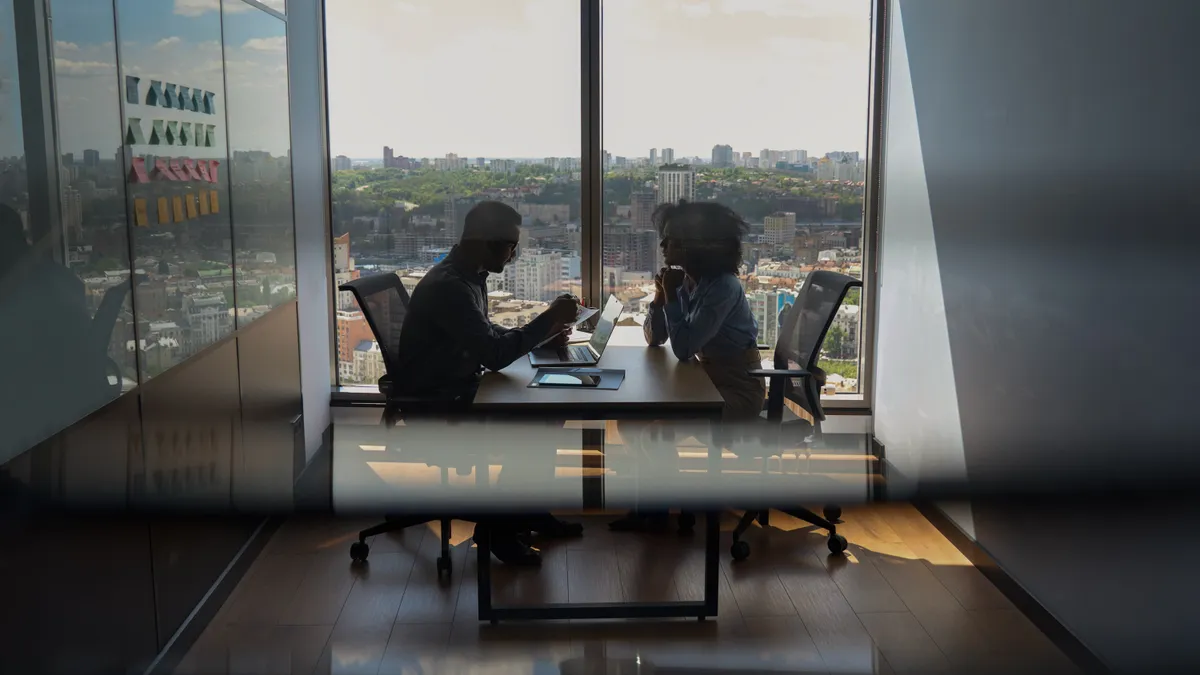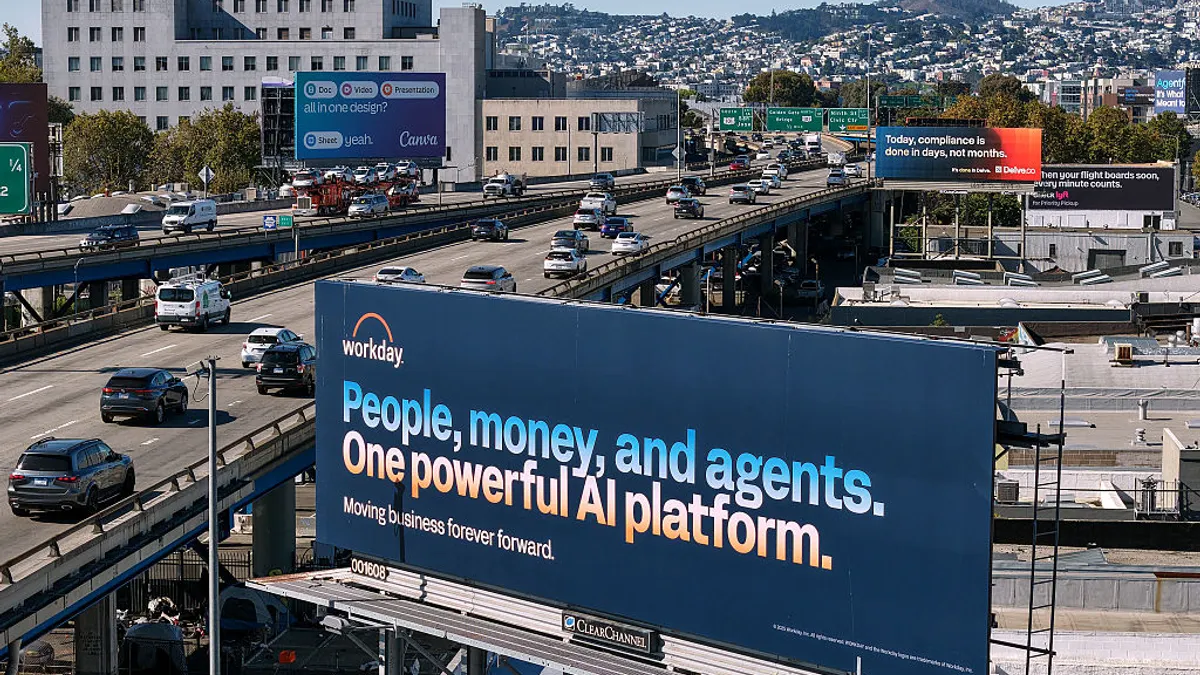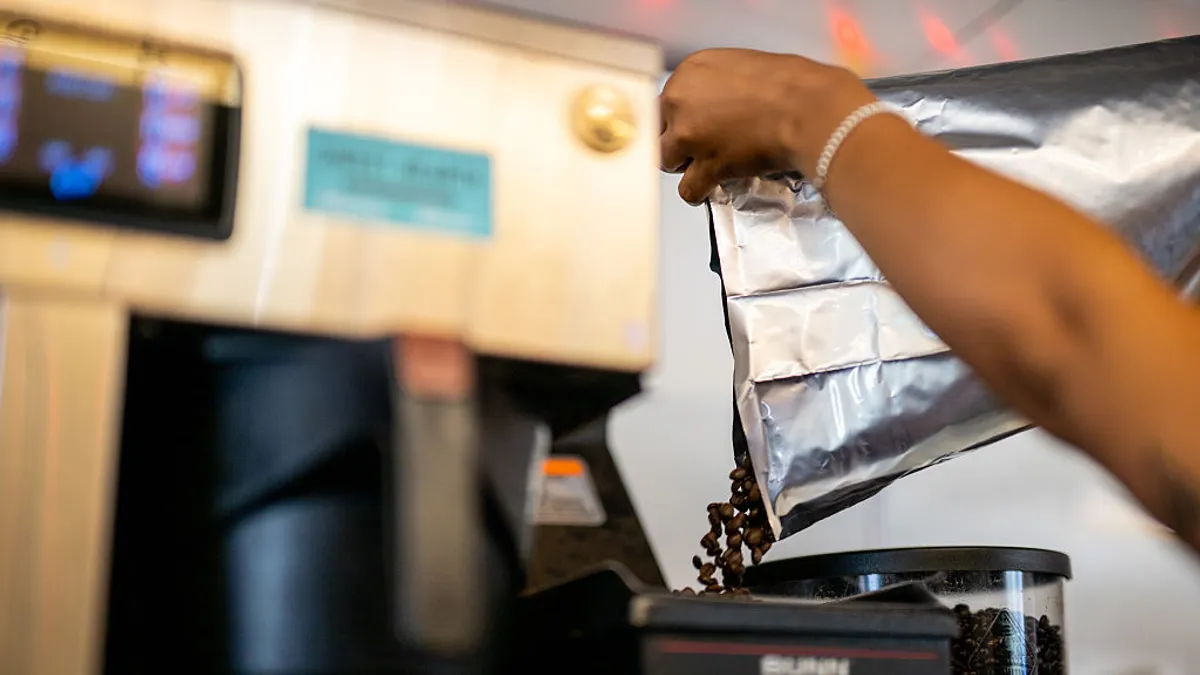If they hadn't previously, workers and leaders alike recognized the importance of resilience this year. Even before the COVID-19 pandemic, research from MeQuilibrium and the American Heart Association suggested resilience is linked to lower burnout and anxiety. Today, it has become a cornerstone of organizational well-being strategies as employers manage workforces through the ongoing crisis.
The good news for employers is that resilience is a skill front-line workers and managers can develop, and recent research suggests they should. A September study from BetterUp found that resilience in managers has a profound effect on employee performance and workers' intent to stay at the company. It also found that coaching can improve employee resilience.
"We're trying first and foremost to help people understand that resilience is something that you don't just have or not have; it can be taught and measured," Gabriella Rosen Kellerman, BetterUp’s chief innovation officer, told HR Dive.
According to Kellerman and other experts that spoke with HR Dive, many of the key tenets of learning still apply when developing a resilient workforce: It requires continuous effort and practice to develop a new skill; training must be personalized and preferably on-demand; and it should be delivered in formats optimized for different learning styles. Additionally, company culture and leadership needs to be willing to hear feedback from employees and take action to support them.
"I believe we need to create workplaces that empower employees to talk about their mental health, similar to how they would if they had the flu or broke an arm," Liz Hilton Segel, managing partner of McKinsey & Company North America, told HR Dive. "That means managers need to be equipped to create a safe space for open conversations so employees feel valued and heard."
What is resilience? How does it make a difference?
Kellerman called resilience a "psychological capacity," noting that psychologists have been studying the topic for many decades, "arguably since the 1960s," while the business world started emphasizing it over "the last 20 years." But it has historically "very much been a nice-to-have as opposed to a must-have," she explained.
As a psychological capacity, resilience can also be challenging to measure. For this, Kellerman recommends self- and "360" reporting.
"We actually look at your own reports on the different components of resilience," she said, "and then we need to look at how your managers or your peers or the people who report to you will rate your ability to really get through challenges."
Kellerman highlighted a few key attributes that comprise a resilience assessment: thriving in uncertainty, self-compassion, and cognitive agility. Ultimately, it is about responding to challenges and stress with a clear head.
"What resilience skills allow you to do is put [pressure] in perspective," Kellerman said, "and really draw from a sense of purpose and meaning about the work that that you're doing and, in a very centered way, be able to absorb those challenges and respond to them creatively, flexibly and with cognitive agility."
In addition to getting work done and keeping employees motivated, resilient managers and teams are also catalysts for innovation, Kellerman said. She gave an example of a hospital system that found new ways to communicate benefit and workplace safety updates to staff, even though it was a time of high stress and change for everyone in the building.
"Identifying market opportunities and identifying challenges to take excess materials that you're not selling and leverage them to create a new supply chain for new products that are flying off the shelves. Those kinds of insights and synergies are some of what resilience unlocks," leading to "sustained competitive advantage," Kellerman said.
Training for and building a culture of resilience
Once an employer understands what resilience is and how to measure it, the work of developing it can begin. The self-assessment component requires dedicated introspection to identify opportunities for improvement.
"I think as you start to gain greater self awareness of your own gaps in resilience, asking others for feedback on that can be really, really powerful," Kellerman said.
To start, employers can recommend individuals take the proper steps to take care of themselves. "Developing a resilient mindset starts with taking care of your mind and body," Hilton Segel said. "When we commit to getting adequate sleep, exercise or movement, spending time on activities that bring us joy (reading, knitting, cooking, etc.) and practicing gratitude, we’re better able to cope with challenges or roadblocks in life and at work."
Employers can also make organizational adjustments to support all workers in this area as well, based on Hilton Segel’s recommendations to McKinsey clients.
"We encourage employers to foster employee resilience by developing initiatives to support employees’ physical and emotional health and well-being, especially in the context of COVID-19," she said. "This requires supporting operations and planning, ensuring adequate support resources, offering trainings, promoting communication and transparency, and building a culture of recognition and support."
Hilton Segel said she sees improving resilience as part of a greater responsibility for employers, especially given today's challenges, to support mental health and well-being across the organization.
"At McKinsey, we’re calling for businesses, including our own, to design a better mental health workplace – creating cultures and companies that foster healthy, empathetic environments," she said. "The answer isn’t straightforward or easy, but it’s clear that now is the time to put people and their mental health at the center of business strategy."
To gain buy-in from leadership, experts suggest reflecting on the value of employees working with a manager that is resilient compared to one that is not. "The people reporting to those managers will have a very, very different experience of the company," Kellerman said, "and it will have much different implications for the well-being of those direct reports." Given the findings of the September BetterUp study tying resilience to productivity, intent to stay, feeling purpose in work and demonstrating creativity, "you sort of see this multiplier effect downstream by way of the managers. And that goes much deeper, thinking about the conventional wisdom that people don't quit jobs, they quit managers. This is the mechanism for how that all happens."
For employees, Kellerman noted that the self-compassion component can be one of the toughest aspects to be comfortable with, let alone develop and master. She defines self-compassion as "the practice of applying the same levels of compassion that we show other people to ourselves."
"When we do have a setback, or we're in a hard spot, we look upon ourselves kindly and generously in a way that allows us to not feel overwhelmed by a sense of failure, and instead to see it as something that's part of normal life, that's part of what we all go through. [...] Some people have never heard of that idea before, they've never tried to practice it before, and it's a very powerful thing in the moment to work with someone who's really struggling really feeling disappointed in themselves or down about something that just happened to help them practice having gained that new perspective," Kellerman said.
In many ways, the increased interest and emphasis on resilience speaks to a greater responsibility that employers have to support people holistically. "One hope I have for all of us during the pandemic is that we identify and invest the time to take measures that restore us and position us for resilience," Hilton Segel said. "I hope we use this time to connect with our inner purpose, figure out what we need to recharge and ultimately develop habits that positively impact our mental health for the long-term."





















